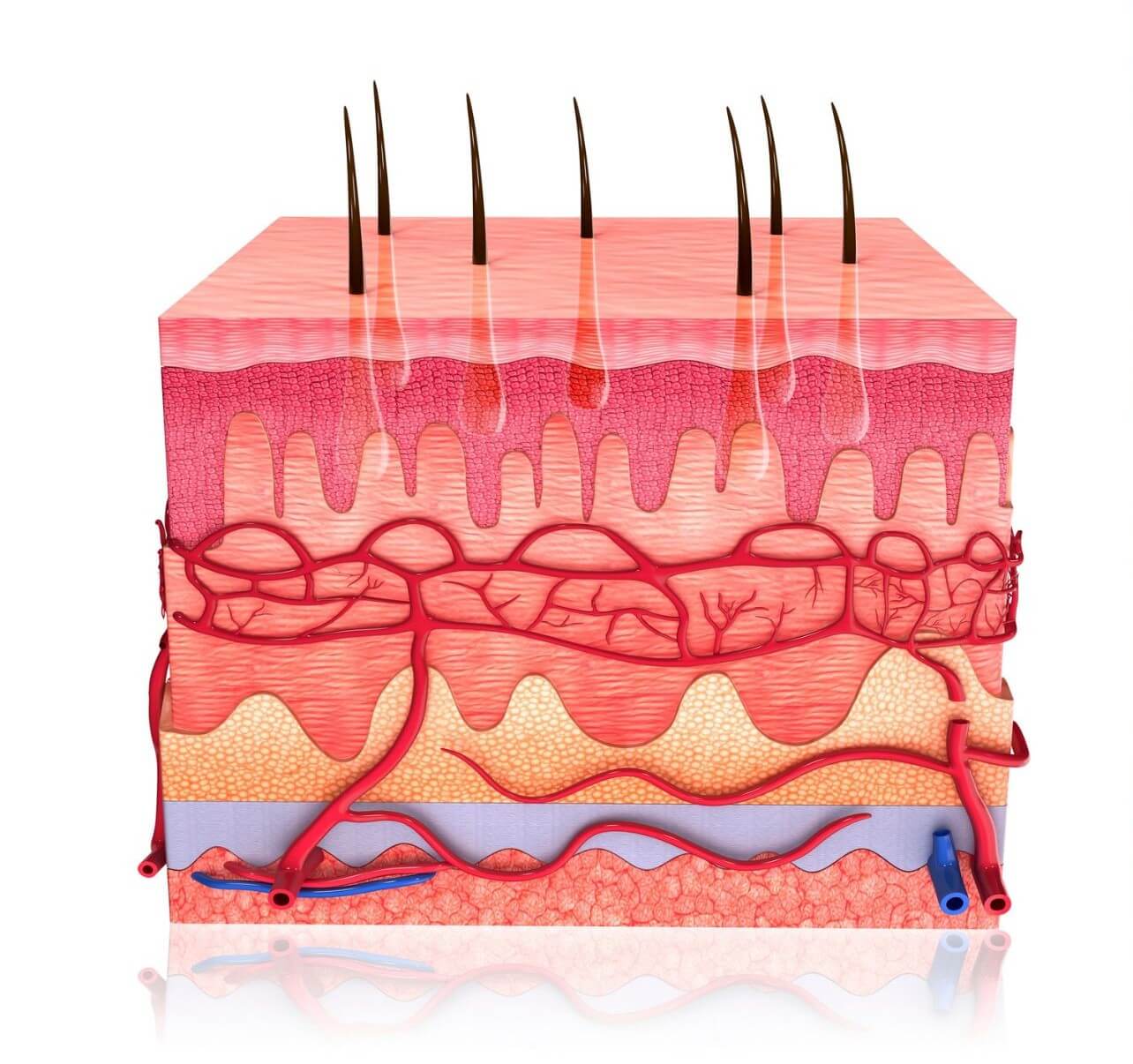Your skin isn’t just a protective wrapper — it’s a highly active organ playing multiple roles in your health. From temperature control to immune defence, it works hard behind the scenes every day. Read on to find out more…
Thermoregulation
Your skin helps regulate body temperature through sweating and blood flow. When you’re hot, sweat evaporates from your skin’s surface, cooling you down. Blood vessels also dilate or constrict to either release or conserve heat.
Vitamin D synthesis
When exposed to UVB rays, your skin converts 7-dehydrocholesterol into previtamin D3, which becomes vitamin D3 (cholecalciferol). This is then activated by the liver and kidneys. Vitamin D supports bone health, immune regulation, and mood balance — and it all starts with your skin.
Immune defence
Your skin is a front-line immune organ. Langerhans cells in the epidermis detect threats and present antigens to T cells. Keratinocytes produce antimicrobial substances, while deeper layers contain mast cells, macrophages, and resident T cells, which all work together to detect pathogens and trigger inflammation when needed.
Barrier function
Skin keeps moisture in and unwanted substances out. The outer layer, or stratum corneum, forms a seal that prevents water loss and blocks irritants, microbes, and allergens. A healthy skin barrier is vital for comfort and protection.
Sensory input
Your skin is covered in sensory nerve endings that detect pressure, temperature, pain, and touch. These help you sense danger and connect with the world around you — whether that’s pulling away from a hot pan or enjoying a hug.
Keeping your skin healthy
Looking after your skin goes beyond applying creams and lotions. Staying hydrated, eating a balanced diet, managing stress, and protecting yourself from too much sun all play a part. Movement and good circulation help nourish your skin and support its natural repair processes.
Where osteopathy fits in
Osteopathy doesn’t directly treat skin conditions — but it does support your overall wellbeing. By improving circulation, lymphatic drainage, and nervous system balance, osteopathic care may indirectly benefit your skin, especially where inflammation, stress, or systemic tension is a contributing factor. After all, everything is connected.
So, if you’re looking for holistic care to support your skin, spine, spleen or sacrum, call us on 03 9762 9445 to book an appointment with one of our osteopaths at Body@Boronia.
Why not follow us on social media for more insights into your body’s brilliant design? We’re on Facebook and Instagram.
References
Foundations of Osteopathic Medicine, 4th ed. Seffinger et al. 2019
Thieme Atlas of Anatomy, 4th ed. Gilroy et al. 2021.
Clinical Sports Medicine: Injuries, 5th ed. Brukner & Khan. 2017.
Principles of Anatomy & Physiology, 13th ed. Tortora & Derrickson. 2011.
Differential Diagnosis and Management for the Chiropractor. 5th ed. Souza. 2016.
Physiopedia website – https://www.physio-pedia.com/home/
Pubmed website for latest articles – https://pubmed.ncbi.nlm.nih.gov/
Google Scholar for latest articles – https://scholar.google.com/
World Health Organisation website – https://www.who.int/
Osteopathy Australia website – https://osteopathy.org.au/
Australian Physiotherapy Association website – https://australian.physio/
Chiropractic Australia website – https://www.chiropracticaustralia.org.au/
Professional bodies websites and health conditions charity websites, like Arthritis Australia – https://arthritisaustralia.com.au/





